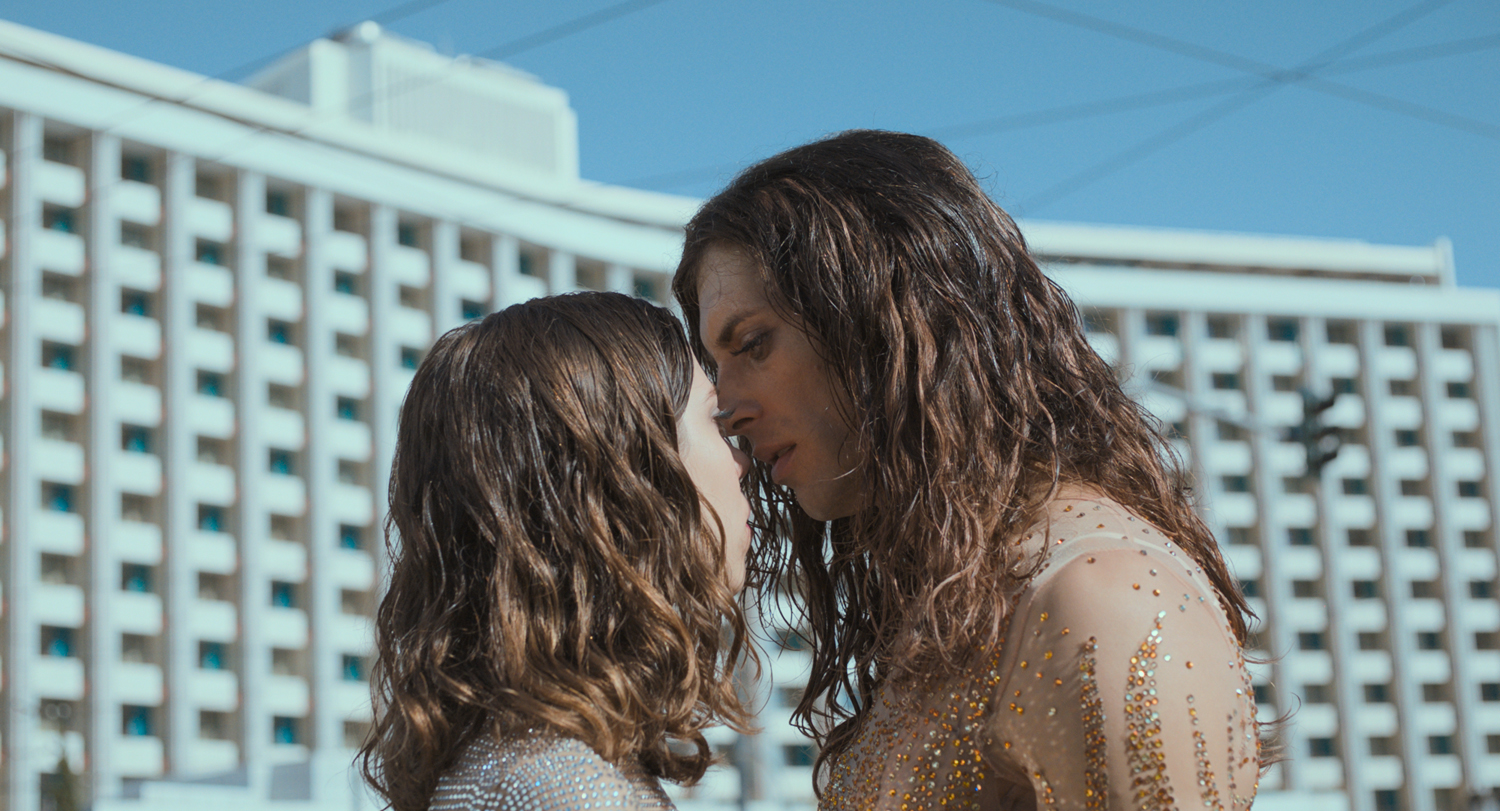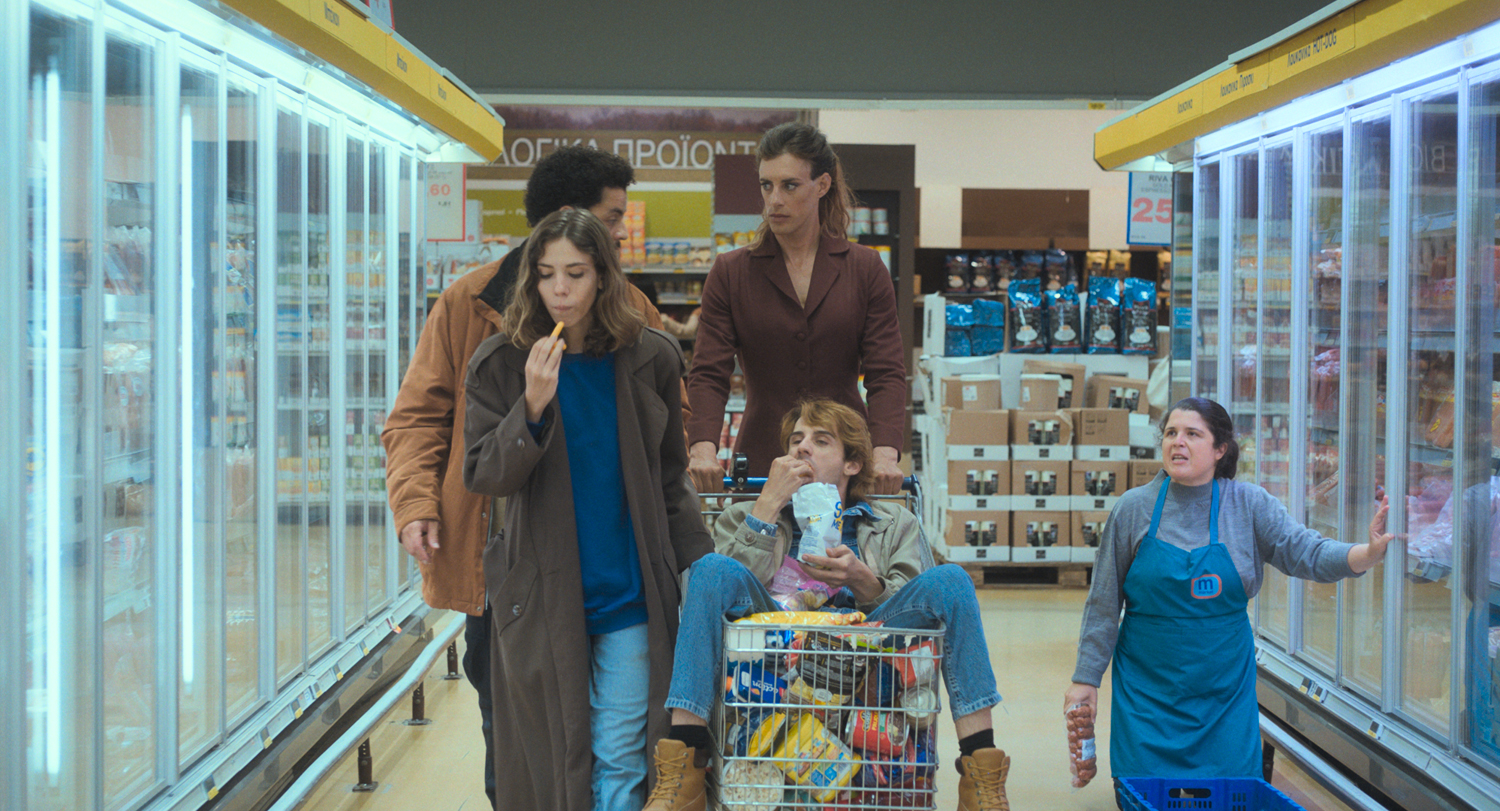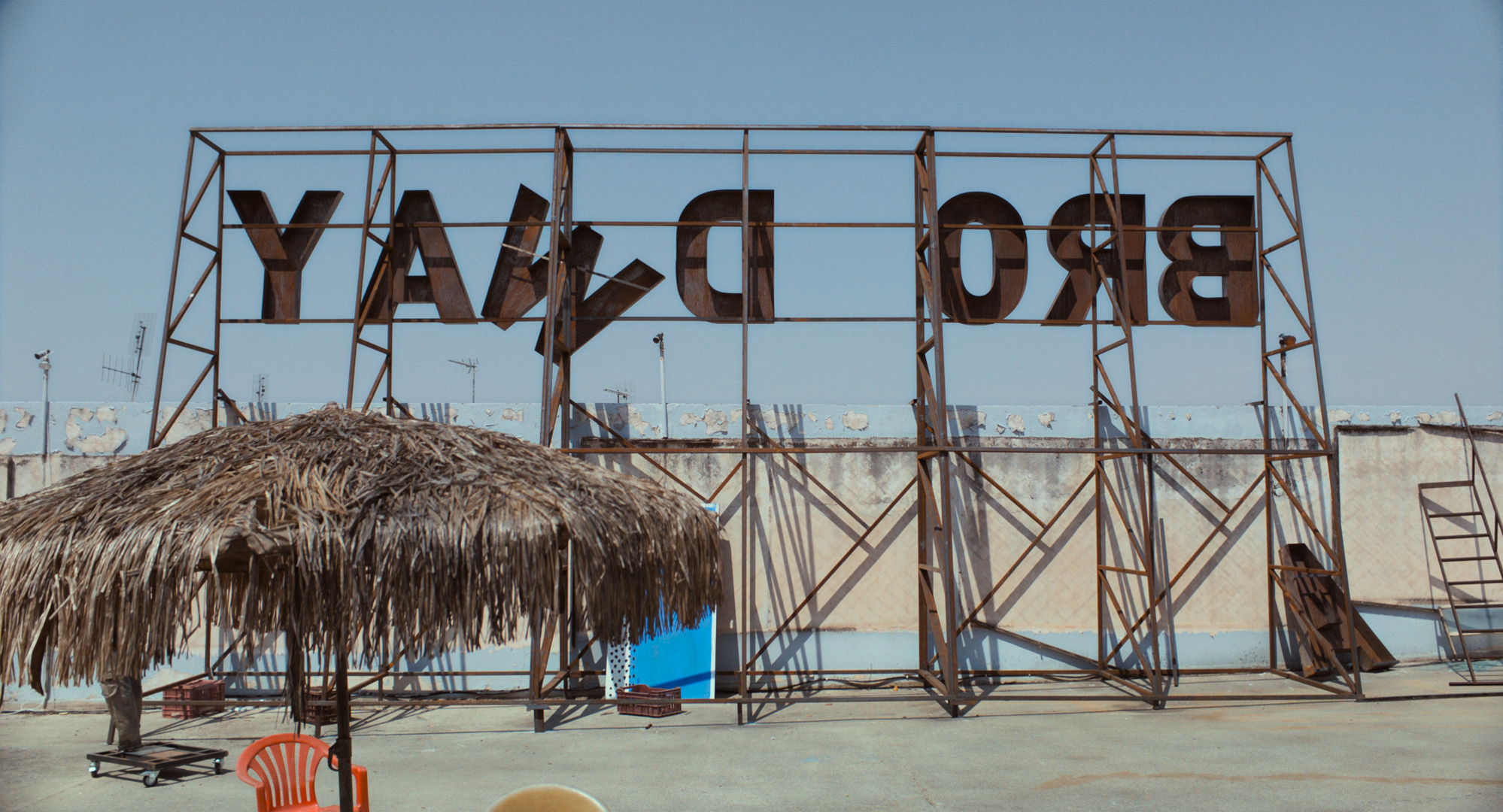Review: “Broadway” is a Tragicomic Crime Wonder
 Friday, April 28, 2023 at 5:00PM
Friday, April 28, 2023 at 5:00PM 
There is a sequence in the romantic crime dramedy BROADWAY where a lot of things clicked with me. Street performer Nelly (Elsa Lekakou) is dragged by policeme. Suddenly, a mob of queer queens swarm in to snatch them from the police. A few moments later, Nelly is reunited with fellow performer Jonas/Barbara (Foivos Papadopoulos). They kiss and rejoice to the orchestral version of Irene Cara’s “Fame”, that they were performing before this arrest.
This scene, which paves way for the film's midpoint, negotiates a variety of tones in a circular structure demonstrating Broadway's sophisticated storytelling. Christos Massalas' surprisingly thoughtful feature film mixes complex imagery, delicate writing, and sensitively portrayed romance with rhythmic movement and striking craft...

You could say that I am adequately versed with cinema's Greek Weird Wave although not as much as I would like to be. From the hilariously macabre Dogtooth to the dramatically cryptic Boy’s Eating the Bird Food to the gleefully spirited Xenia, these films achieved their potency through haunting absurdity that pushed narrative to unexpected places. Broadway fits perfectly within that roster of films, but pushes it further by not just banking on its idiosyncrasy but by amalgamating it with surprising emotional intersections.
Nelly is introduced to an eclectic band of characters - a gay couple named Rudolph (Rafael Papad) and Mohammad (Salim Talbi), an old man named The Locksmith (Hristos Politis), and the aforementioned Jonas, a heavily injured man who starts cross-dressing and referring to himself as Barbara to protect his anonymity from the outside world. Together, they stage their act by letting Nelly and Jonas/Barbara dance on the streets while they collectively pickpocket the crowd watching. Lest we forget, they also have a pet monkey!
Mounted with symphonic precision, the film invites us to be a part of this thrilling dangerous dance. Far from the projected glamor of their street performances, most of the story unfolds at the abandoned titular building that houses a spacious theater and an open-air cinema at the rooftop. The setting adds an elegiac texture to the film’s themes, with a building’s name referencing New York City’s glamorous haven of dreamers and artists. But this building is far from that; even if the stage lights are still working, the bygone spirit of the place lingers in each scene. A striking decay permeates the space, a strong contrast to the America's "Broadway" that is starkly clear even to Nelly.

The film admirably shifts gears in service of a perspective that is close to its protagonists. There is no single tone that Broadway banks on, yet it never feels tentative. The melancholic atmosphere is offset by a lack of sentimentality. The springing joy of a newly born romance is always on the threat of being cut short. Nothing good ever really lasts in this world. So the journey changes course and darkens.
The narrative is rich but the film is especially impressive on a technical level. Konstantinos Koukoulios deserves much credit for his cinematography, with excellent use of lighting, shadows, and colors to guide us through the multiple layers the narrative is working on. Anna Georgiadou’s production design communicates a lot of the film’s themes successfully, especially her work on the titular run-down building. Oscar-nominated editor Yorgos Lamprinos (The Father) aids in conveying this further, not only helping to shape tone and mood but also in pulling off the film’s structural conceit. Oscar-winning composer Gabriel Yared (The English Patient) gives the film a delicious lushness through its exciting musical score.
The bookending scenes of this film could not be any farther apart, and yet they are in paradoxical connection with each other. What does it really mean to be separate and what does it really mean to be together? How can connection cause pain and how can separation cause joy? The film serves as a backstage drama, but life is the stage and the abandoned building of Broadway is the dressing room. In his directorial feature film debut, Christos Massalas has crafted a fascinating creation, blurring what is real and what is a performance, imagining a world where death and rebirth face each other head-on.
Grade: B+
BROADWAY opens today in select theaters (LA/NY/Bay Area) and drops May 16 in digital and DVD format.
 Broadway,
Broadway,  Christos Massalas,
Christos Massalas,  Gabriel Yared,
Gabriel Yared,  Greece,
Greece,  Yorgos Lamprinos
Yorgos Lamprinos 

